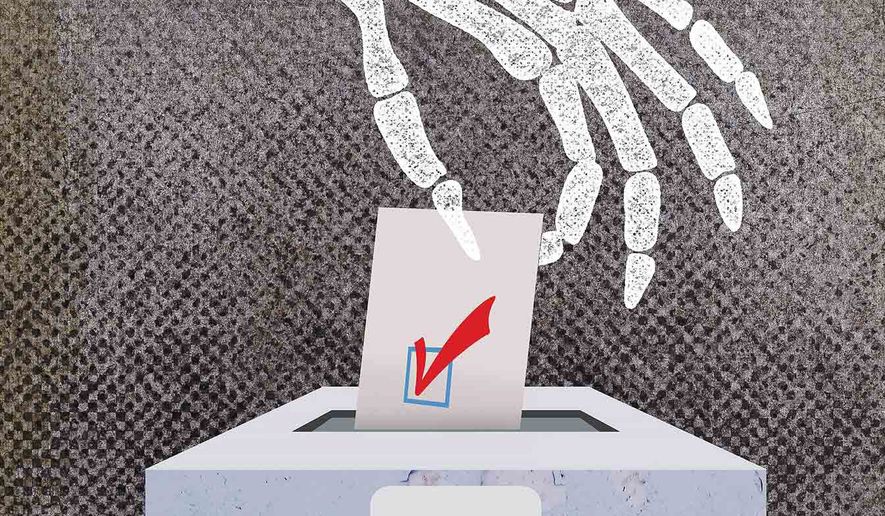OPINION:
After 2020, election integrity is all the rage. That is a welcome change, but election integrity involves grunt work. The grunt work is more important than snazzy lawsuits that lose. Two landmark court decisions in the last week represent real progress toward cleaner elections.
Federal courts in Maine and Illinois handed down two rulings to make elections more transparent. This is important because so much of the 2020 election was shrouded in bureaucratic defensiveness, outright secrecy and just enough hide-the-ball to raise doubts about the outcome.
First Illinois. In 2019, the Public Interest Legal Foundation — which I head — asked Illinois for a copy of state voter rolls.
Voter rolls are the ultimate record representing who state election officials think are eligible to vote. They are an essential election integrity document. Unfortunately, we have found rolls in other states filled with dead registrants, folks who live in other states and even voters registered up to seven times at a single address.
Of course, Illinois denied our request. After all, no election official likes to hear how badly they do voter list maintenance. Had we obtained the Illinois voter rolls in 2019, we would have added them to our nationwide database before the critical 2020 election to see who is registered in Illinois and other states at the same time.
When Illinois denied our request, we sued, alleging that the National Voter Registration Act of 1993 — often called Motor Voter — made rolls public. This month, the federal court agreed, granting us summary judgment that the rolls are public under Motor Voter. Things got so haywire in the Illinois election office during the litigation that the top election official resigned over allegations he was being extorted through an online app.
No doubt Illinois won’t look good after we get the rolls.
In other states, including Pennsylvania and Michigan, we found tens of thousands of active dead registrants, some dead for decades.
Judith Presto was one of those dead voters in Pennsylvania. Our database showed she registered to vote after she died. Pennsylvania election officials argued in federal court that a post-death registration, like Presto’s, had to be an error in our data, not a mistake on their part. Ultimately, Presto’s husband was criminally charged, and our analysis was the only way Pennsylvania election officials knew about it — despite criticizing it in court.
Maine was the next big win this month. There, a federal court ruled in a similar case of ours that the voter rolls are also public under Motor Voter. Remaining to be decided in court is how much a state may punish and fine groups like ours for using the rolls to find mistakes and problems by election officials.
You read that right.
Maine might give you the voter rolls but has a law that punishes and fines anyone who reports problems, such as voters registered multiple times or registered and voting in other states in addition to Maine.
This is how far some states will go to hide the bad job they do running elections.
These rulings are important because obtaining voter rolls is the first step to holding election officials accountable. So much energy and money were wasted after the 2020 election on baseless election litigation. Those cases hurt the cause.
Establishing that voter rolls are public records under federal law allows groups to conduct real research and careful nationwide analysis of where the problems are in our system and which election officials are dropping the ball.
Once we have Maine and Illinois voter rolls, they will be added to our nationwide database to reveal how many problems are on the rolls. Those results go back to election officials to help them fix the problems.
All of this illustrates that avoiding another 2020 election doesn’t enjoy a silver bullet solution. Election integrity is grunt work and requires careful judgment. Most of all, it would sure help if election officials stopped hiding their work.
• J. Christian Adams is president of the Public Interest Legal Foundation, former Justice Department lawyer and commissioner on the United States Commission on Civil Rights.




Please read our comment policy before commenting.